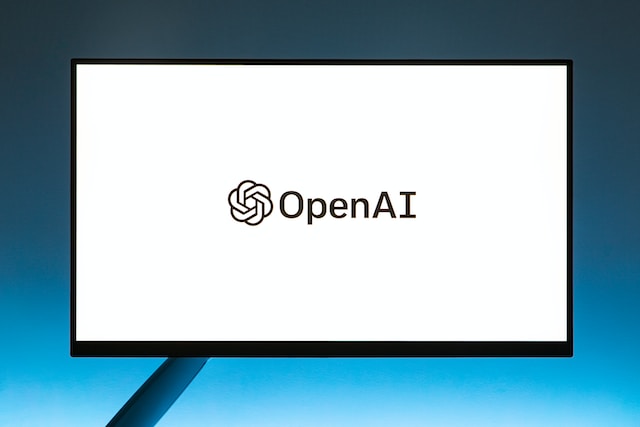Chat GPT, a language model developed by OpenAI, is one of the most advanced chatbots in the world today. It has the ability to understand natural language and generate responses that are almost indistinguishable from those of a human. This breakthrough in artificial intelligence has many potential applications, from improving customer service to assisting with mental health counseling.
In this blog, we will explore the history, applications, advantages, limitations, and future of Chat GPT, as well as ethical considerations surrounding its use.
Introduction
Chat GPT is a language model created by OpenAI based on the GPT (Generative Pre-trained Transformer) architecture. Its purpose is to generate human-like responses to text-based inputs, making it useful for various applications such as customer service, healthcare, and education.
Chat GPT works by analyzing large amounts of text data and using it to predict the most likely response to a given input. This is achieved through a process called deep learning, which involves training the model on vast amounts of data to learn patterns and relationships between words and phrases.
The end result is a language model that can generate coherent and contextually appropriate responses to text-based inputs.
History of Chatbots and Language Models
Chat GPT represents a significant advancement over previous chatbots and language models. One of the key differences is that Chat GPT is based on the GPT architecture, which is a state-of-the-art language model that has been pre-trained on vast amounts of data.
This pre-training allows the model to generate contextually appropriate responses to a wide range of inputs, without the need for extensive training on specific domains.
Additionally, Chat GPT is designed to be highly flexible, meaning that it can be adapted to a wide range of applications and domains. This flexibility is due to the fact that the model is not specifically trained on any one task or domain, but rather on a broad range of text data.
Overall, these advancements make Chat GPT a powerful tool for a wide range of applications, including customer service, healthcare, and education.
Applications of Chat GPT
Chat GPT has a wide range of potential applications, some of which are:
- Customer Service: Chat GPT can be used to provide customer service support, answering common questions and resolving issues without the need for human intervention.
- Healthcare: It can be used to provide personalized healthcare recommendations and guidance, based on a patient’s symptoms and medical history.
- Education: Chat GPT can be used to provide personalized learning experiences for students, answering questions and providing guidance on a wide range of topics.
- Finance: Itcan be used to provide financial advice and support, answering questions and providing guidance on topics such as budgeting, investing, and retirement planning.
- E-commerce: Chat GPT can be used to provide product recommendations and support, helping customers navigate the purchasing process and make informed buying decisions.
Overall, Chat GPT has the potential to revolutionize a wide range of industries, providing personalized and responsive support to users in a way that was not previously possible.
Advantages and Limitations of Chat GPT
Like any technology, Chat GPT has its advantages and limitations.
Advantages:
- Efficiency: Chat GPT can respond to multiple users at the same time, making it a more efficient solution for customer service and support compared to human agents.
- Availability: Chat GPT can operate 24/7, providing support to users at any time of the day or night.
- Scalability: Chat GPT can scale to meet the needs of a growing user base, without the need for additional human agents.
- Personalization: Chat GPT can provide personalized support to users based on their unique needs and preferences.
Limitations:
- Lack of Empathy: Chat GPT lacks the empathy and emotional intelligence of human agents, which can be a disadvantage in some situations.
- Limited Context: Chat GPT can sometimes struggle to understand the context of a user’s question, leading to inaccurate or irrelevant responses.
- Bias: Chat GPT can sometimes perpetuate bias, as it learns from the data it is trained on, which may include biased language and perspectives.
- Technical Issues: Chat GPT can experience technical issues and glitches, which can lead to delays and frustration for users.
Overall, Chat GPT has the potential to transform the way we interact with technology and receive support. However, it is important to consider its limitations and ensure that it is used in appropriate contexts.
Future of Chat GPT
Chat GPT is a rapidly evolving technology, and its future looks bright. Some potential future developments and applications of Chat GPT include:
- Improved Personalization: As Chat GPT continues to learn from user interactions, it has the potential to become even more personalized and tailored to individual needs and preferences.
- Emotional Intelligence: Researchers are working to develop Chat GPT models with emotional intelligence, which could help the technology better understand and respond to the emotional needs of users.
- Multilingual Support: Chat GPT models are currently available in multiple languages, but researchers are working to improve the accuracy and effectiveness of multilingual support.
- Integration with Other Technologies: Chat GPT has the potential to be integrated with other technologies such as voice assistants and virtual reality, creating a more immersive and seamless user experience.
Overall, the future of Chat GPT is exciting, and it has the potential to transform the way we interact with technology and receive support in a wide range of industries.
Ethical Considerations
As with any technology, there are ethical considerations that must be taken into account when it comes to Chat GPT. Some of these considerations include:
- Bias: As Chat GPT is trained on existing data, it has the potential to perpetuate biases and reinforce existing inequalities. It is important to monitor and address any bias in the training data to ensure that the technology is fair and equitable.
- Privacy: Chat GPT can collect and store personal data from users, which raises concerns about privacy and data protection. It is important to ensure that user data is collected and stored in a secure and ethical manner.
- Transparency: Users have the right to know when they are interacting with a chatbot rather than a human agent. Chat GPT providers should be transparent about the use of the technology and ensure that users are aware of its capabilities and limitations.
- Accountability: Chat GPT providers should be accountable for the actions and decisions of their technology. It is important to have systems in place to address any errors, mistakes, or negative outcomes resulting from the use of Chat GPT.
- User Safety: Chat GPT should not be used in situations where it could put user safety at risk. Providers should ensure that the technology is used responsibly and ethically.
Overall, ethical considerations are an important part of the development and deployment of Chat GPT. By taking these considerations into account, we can ensure that the technology is used in a way that is fair, equitable, and responsible.
Conclusion
In conclusion, Chat GPT is a powerful technology that has the potential to revolutionize the way we interact with machines and each other.
It has a wide range of applications, from customer service to mental health counseling, and is capable of understanding and responding to natural language in a way that was previously impossible.
However, there are also limitations to Chat GPT, including issues related to bias, privacy, transparency, accountability, and user safety. These ethical considerations must be taken into account to ensure that Chat GPT is used in a responsible and ethical manner.
Despite its limitations, the potential of Chat GPT is immense. It has the ability to improve efficiency, save time and resources, and provide access to services in remote or underserved areas.
As technology continues to evolve, it will be important to continue to monitor its impact on society and ensure that it is used in a way that benefits everyone.
Overall, Chat GPT represents an exciting and transformative development in the field of artificial intelligence, and its potential impact on society cannot be overstated.



